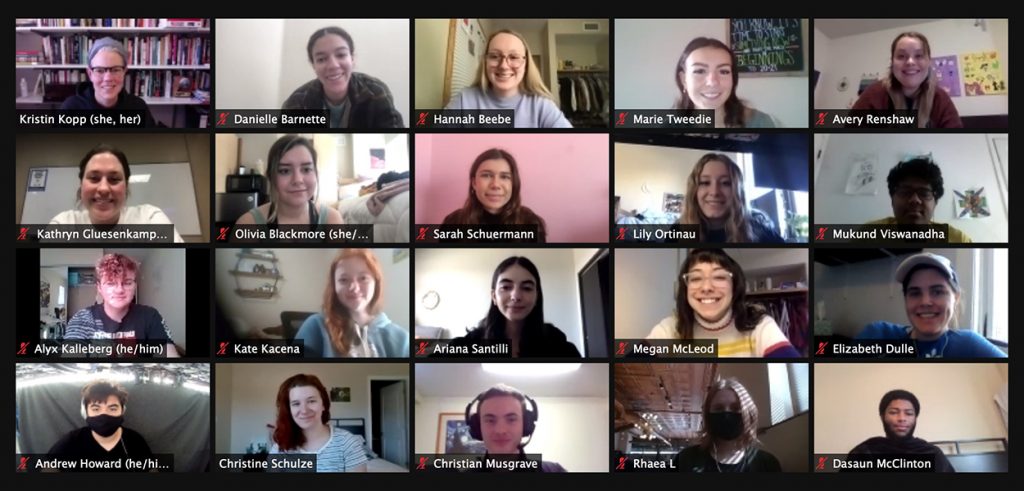Published on Feb. 26, 2021
Taught by Kristin Kopp, associate professor of German, “History of Blacks in Germany” offers an international perspective on race. The class, offered every spring for the past decade, covers the history of the African diaspora in central Europe spanning from antiquity to the modern day.

Students from University of Michigan, University College London and Mizzou meet to discuss topics in the class “History of Blacks in Germany.”
“It’s a very different history when looking at the European continent,” Kopp says. “[The class] lets us think about African history outside the frame of slavery. Looking at the time period before Atlantic slavery, we get to look at African figures as powerful historical figures who were agents of history.”
Powerful figures indeed; the class began the semester with Roman emperors of African descent and their exploits in Africa, Europe and Asia Minor.
Notably, the class’s international perspective on Black history isn’t limited to MU students; two other institutions offer the class, using the same syllabus as Mizzou.
Kopp and two compatriots, one at the University of Michigan and the other at University College London, have created the framework for the class over the past few years, as part of an innovative approach to teaching and learning.
Students from each institution are put into mixed groups that meet for virtual discussions. “It’s important for our students to gain a sense for the international ramifications of these questions, and it was very important for us for our students to be in contact with each other in an international learning community,” Kopp says. ”It remains a favorite aspect of the course for students.”
Diversity of experience and opinion is a common theme of this course. Students are a mix of majors — German, journalism and history — and races.
“It’s common for students to be angry in the first couple weeks of class, especially when we learn about African emperors and African popes, with the sense that [history] been denied them,” Kopp says. “There will be a real righteous anger in the classroom. ‘My history has been withheld from me and that causes me pain.’ The conversation will stop, and a student will look up and say ‘I’m amazed we’re all talking about this together.’ ”
Kopp has seen major changes in student relationships, opinions and understanding over the past ten years.
“No one leaves this class without having had some profound shift in how they think about how race is and how race works,” Kopp says.
Kopp hopes to extend the class’s international reach.
“I know that we’re going to be expanding the international network in future years, we’re working on that right now; finding classes in Germany that we can add to our conversation mix,” Kopp says.
The class’s next topic? German colonialism – and how Black history fits into it.
“German colonial history – it’s short, and that’s why no one knows about it….It gives us an opportunity to look at African resistance figures. They’re not subjects of German history, they’re agents of their own.”